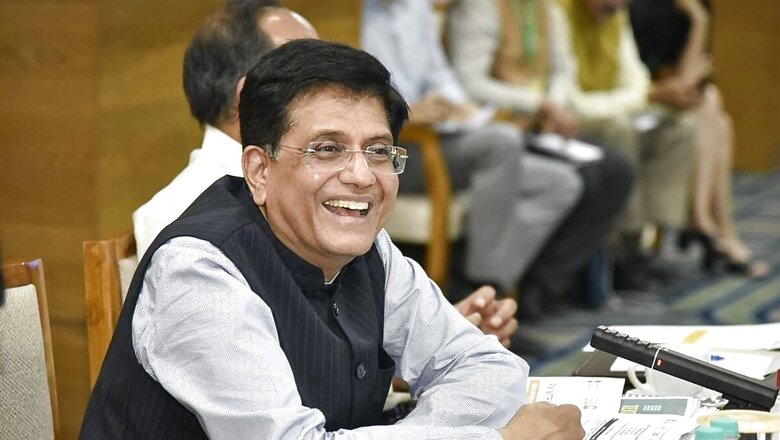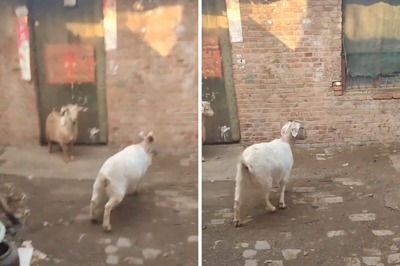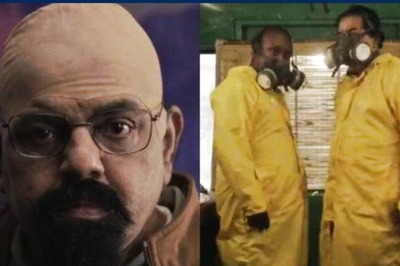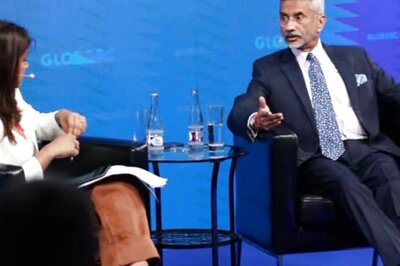
views
With the India-UK talks for a free trade agreement has reached a ”critical stage”, the visit of Commerce and Industry Minister Piyush Goyal to London this week has helped in moving the negotiations forward as both the countries held discussions on various ”difficult” issues, an official statement said on Wednesday.
”Encouragingly, considerable progress was achieved during their frank and open discussions on various difficult issues,” the commerce ministry said in a statement.
The minister is on a three-day visit to London from July 10.
”The visit was strategically timed, coinciding with the critical stage of ongoing negotiations, and proved to be instrumental in moving the discussions forward,” it said.
Goyal met with the Secretary of State for Trade of the United Kingdom, Kemi Badenoch, to discuss the free trade agreement (FTA) and explore opportunities for enhanced collaboration between the two nations.
It said that both sides focused on low-hanging fruits, which included the closure of several chapters in the negotiations.
”This pragmatic approach aimed at resolving issues where negotiators had encountered challenges. The visit proved to be critical in overcoming crucial obstacles and charting a path forward towards an ambitious and mutually beneficial trade deal,” it said.
Recognizing India’s vast population of 1.4 billion and its remarkable economic growth, both ministers acknowledged the immense potential of the Indian market for Britain.
Negotiations for a trade agreement between India and the UK were launched on January 13, 2021.
The negotiations between the two countries for the agreement cover as many as 26 policy areas/chapters. Investment is being negotiated as a separate agreement (bilateral investment treaty) between India and the UK and it would be concluded simultaneously with the free trade agreement.
Both the countries had last year missed the Diwali deadline due to unprecedented economic and political crises in the UK.
The Indian industry is demanding greater access for its skilled professionals in the UK market and entry of Indian whiskey by removal of conditions pertaining to the three-year minimum maturation period. The UK is also seeking a significant cut in the import duties on Scotch whisky. Britain is also looking for more opportunities for UK services into the Indian markets.
The bilateral trade between the countries has increased to USD 20.36 billion in 2022-23 from USD 17.5 billion in 2021-22.
India’s main exports to the UK are ready-made garments and textiles, gems and jewellery, engineering goods, petroleum and petrochemical products, transport equipment, spices, machinery and instruments, pharmaceuticals and marine products.
The main imports include precious and semi-precious stones, ores and metal scraps, engineering goods, professional instruments other than electronics, chemicals and machinery.
In the services sector, the UK is the largest market in Europe for Indian IT services.
In the field of investment, the UK is one of the top investors in India. In 2022-23, India received USD 1.74 billion in foreign direct investment from Britain as against USD one billion in 2021-22. During April 2000 and March 2023, the investments stood at USD 33.9 billion.
Under such pacts, two trading partners significantly reduce or eliminate customs duties on the maximum number of goods traded between them, besides easing norms to promote trade in services and investments.
Britain, which has an USD 3.1 trillion economy according to World bank data, has long been a service sector powerhouse. The city of London, which is one the world’s biggest financial markets, has also long attracted Indian companies seeking to raise funds from the global market.




















Comments
0 comment